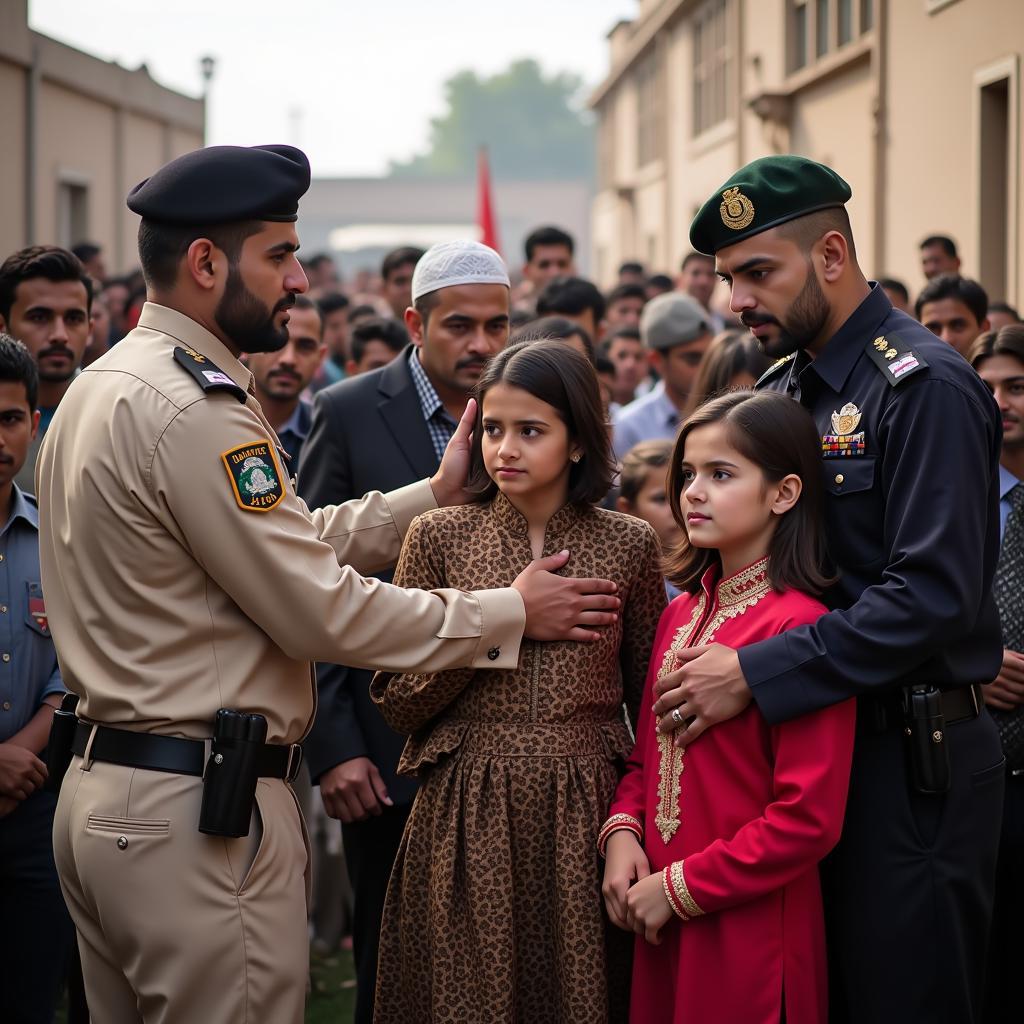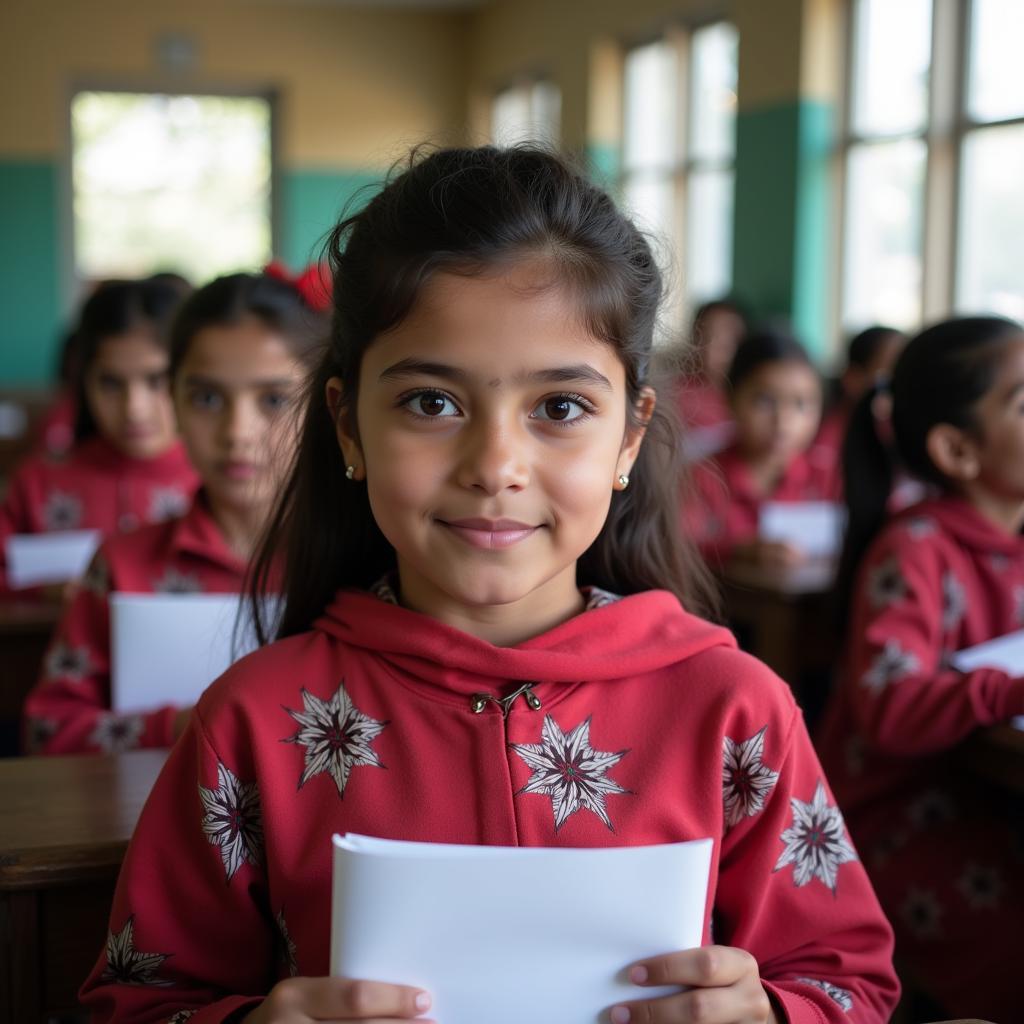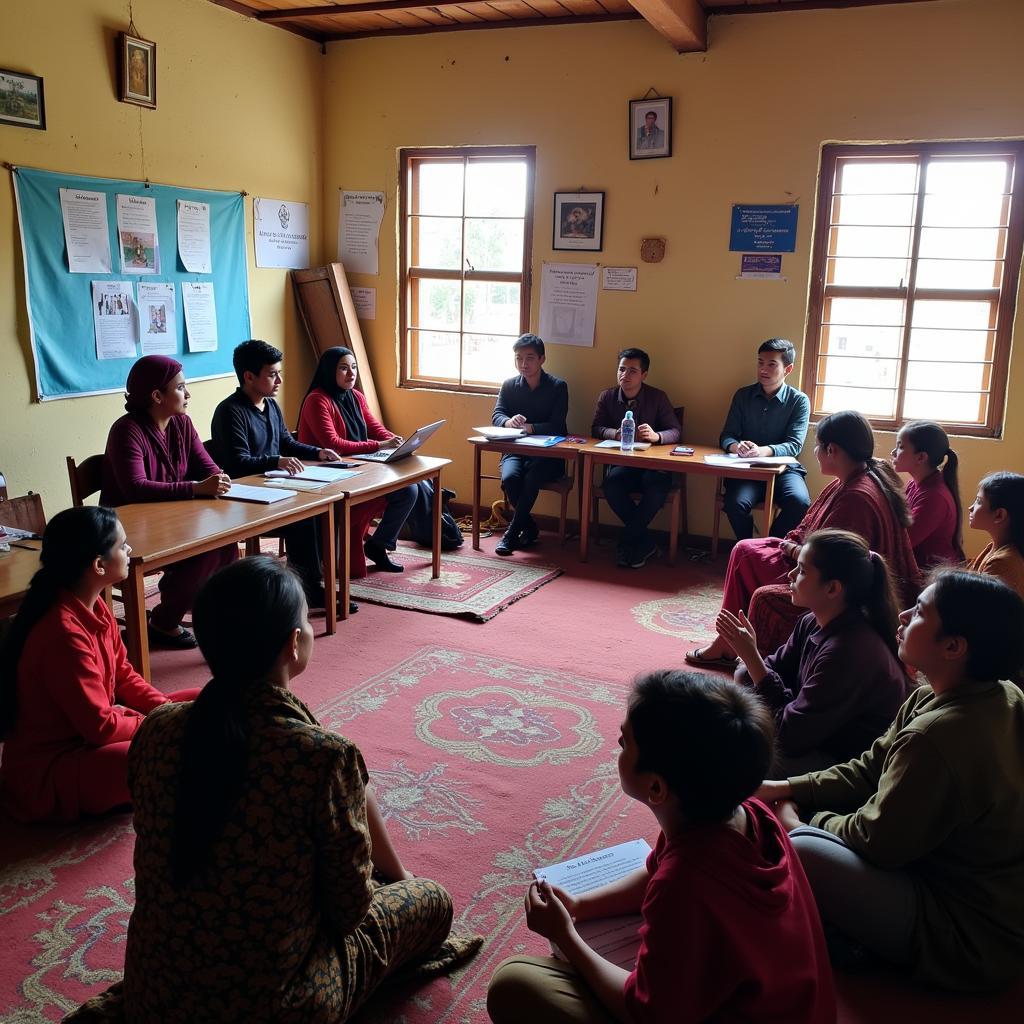The Child Marriage Restraint Act 2017 in Pakistan is a crucial piece of legislation aimed at protecting children from the harmful practice of child marriage. This act amends the previous 1929 law, strengthening its provisions and increasing penalties for violations. This article delves into the details of the Child Marriage Restraint Act 2017, its significance, challenges in implementation, and its impact on Pakistani society.
A Closer Look at the Child Marriage Restraint Act 2017
The Child Marriage Restraint Act 2017 defines a child as anyone under the age of 18. This is a significant change from the previous law, which had different age limits based on gender. The act criminalizes the solemnization of child marriages and increases the punishment for those involved. It sets the minimum age for marriage at 18 for both boys and girls, aiming to protect the rights and well-being of children. The Act recognizes child marriage as a violation of fundamental human rights, emphasizing the importance of education, health, and personal development for children. The act empowers courts to take proactive measures to prevent child marriages and provides legal recourse for victims.
The Act outlines specific penalties for those who participate in or facilitate child marriages, including parents, guardians, nikah registrars, and witnesses. These stricter penalties aim to deter individuals and communities from engaging in this harmful practice. The law also provides protection for those who report child marriages and safeguards victims from further harm.
 Child Marriage Restraint Act 2017 Enforcement in Pakistan
Child Marriage Restraint Act 2017 Enforcement in Pakistan
Challenges and Successes of the Child Marriage Restraint Act 2017 Pakistan
Despite the Act’s progressive nature, implementation remains a challenge in Pakistan. Deep-rooted cultural norms and traditional practices often hinder effective enforcement. Lack of awareness about the law, particularly in rural areas, poses a significant obstacle. Furthermore, poverty, lack of access to education, and gender inequality contribute to the persistence of child marriage.
However, the Child Marriage Restraint Act 2017 has achieved some successes. It has raised awareness about the detrimental effects of child marriage and provided a legal framework for intervention. Several cases have been registered under the Act, demonstrating a growing willingness to challenge this harmful practice. The Act has also encouraged civil society organizations to advocate for child rights and support victims of child marriage.
 Pakistani Girl Attending School After Being Saved From Child Marriage
Pakistani Girl Attending School After Being Saved From Child Marriage
What are the penalties under the Child Marriage Restraint Act 2017?
The penalties under the Act include imprisonment and fines for those involved in arranging or solemnizing a child marriage. This includes parents, guardians, and nikah registrars.
Why is the Child Marriage Restraint Act important?
The Act is crucial for protecting children’s rights, promoting their well-being, and ensuring their access to education and opportunities. It recognizes that child marriage deprives children of their childhood and has severe negative consequences on their physical and mental health.
How does the Act address cultural norms related to child marriage?
The Act challenges traditional practices by criminalizing child marriage. It promotes awareness about the negative impact of child marriage and empowers individuals and communities to reject this harmful tradition.
 Community Workshop on Child Marriage Awareness in Pakistan
Community Workshop on Child Marriage Awareness in Pakistan
Conclusion
The Child Marriage Restraint Act 2017 marks a significant step forward in protecting children in Pakistan. While challenges remain in its implementation, the Act provides a critical legal framework and fosters a growing movement towards eradicating child marriage. Continuous efforts in awareness raising, enforcement, and community engagement are essential to fully realize the Act’s potential and ensure a brighter future for Pakistani children. The successful implementation of the Child Marriage Restraint Act 2017 requires collaborative efforts from government agencies, civil society organizations, and communities to create a protective environment for children and uphold their fundamental rights.
FAQ
- What is the legal age of marriage in Pakistan according to the 2017 Act? (18 years old)
- Who can be penalized under the Child Marriage Restraint Act? (Parents, guardians, nikah registrars, and anyone involved in facilitating a child marriage.)
- What are the consequences of child marriage? (Negative impacts on health, education, and overall well-being.)
- How can I report a child marriage? (Contact local authorities or child protection agencies.)
- Where can I find more information about the Child Marriage Restraint Act 2017? (Government websites, legal resources, and NGOs working on child rights.)
- What are some organizations working to prevent child marriage in Pakistan? (Several NGOs and international organizations are actively working in this area.)
- How does the Act contribute to achieving the Sustainable Development Goals? (It aligns with goals related to gender equality, good health and well-being, and quality education.)
For any assistance related to child marriage and the Child Marriage Restraint Act 2017 in Pakistan, please contact us: Phone: +923337849799, Email: [email protected] or visit our office at Dera Ghazi Khan Rd, Rakhni, Barkhan, Balochistan, Pakistan. We have a 24/7 customer support team available to help.
You can also find more information on related topics on our website:
- Legal Rights of Children in Pakistan
- Understanding Pakistani Family Law
- The Role of Education in Preventing Child Marriage
We encourage you to explore these resources and learn more about how you can contribute to ending child marriage in Pakistan.